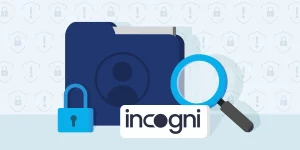- 18 August 2023
- 73
AI and Privacy Risks: Safeguarding Your Data

This article is designed for individuals who are curious about the impact of artificial intelligence (AI) on their privacy and are looking for ways to safeguard their personal data in an increasingly automated world. Readers concerned about the privacy risks associated with AI technologies, as well as those interested in understanding the legal and ethical implications of data privacy in the age of AI, will find valuable insights in this article. The content aims to provide clear explanations and practical advice, making it accessible to both tech-savvy individuals and those with limited technical knowledge.
Unveiling the Privacy Risks Linked to AI
AI has transformed the way we interact with technology, enabling rapid data processing and personalized experiences. However, many AI services come at the cost of compromising our privacy. Take services like ChatGPT, Google Cloud AI, and others—while they offer convenience and efficiency, their privacy policies reveal that they collect personal information, track our online activities, and even source data from social media platforms. Our data is then used to train AI models that power these services.
The convenience of having emails composed, chatting with customer service bots, or receiving tailored recommendations comes at the expense of our data privacy. As AI-driven services rely heavily on data collection, the line between convenience and intrusion blurs. Unfortunately, data breaches and cyberattacks have exposed the vulnerabilities in data protection, leading to identity theft, financial loss, and reputation damage for individuals.
Legal and Ethical Complexities: Privacy in the Age of AI
The legal and ethical implications of AI’s impact on privacy are complex and multifaceted. While there is no comprehensive federal legislation dedicated solely to AI regulation in the United States, the European Union has taken a step forward with the AI Act. This regulation underscores the importance of protecting privacy and safety in the face of AI advancements. However, implementing effective regulations for AI is challenging due to the intricate nature of AI algorithms.

Furthermore, existing privacy laws often rely on a notice-and-consent model, where users agree to privacy policies they seldom read. With individuals willingly sharing private information to embrace the AI revolution, striking a balance between innovation and data privacy becomes crucial. Ethical considerations must guide AI development, ensuring transparency, fairness, and protection of data.
Building an Ethical and Privacy-Driven AI Future
As AI continues to evolve, fostering an ethical and privacy-centric AI future becomes paramount. AI models should be designed with Privacy-By-Design principles, integrating data protection measures into every aspect of their operation. Robust laws and regulations are needed to govern AI models and companies operating in this space. Transparency is vital—AI models must be accountable for the decisions they make with our data.

To build trust in AI, it’s imperative that AI companies prioritize user consent and data protection. AI algorithms should be clear about how they utilize user data, enabling individuals to make informed decisions about sharing their information. A comprehensive approach to AI ethics and privacy can lead to a future where AI-powered innovations coexist with user security and privacy.
Your Role in Upholding Your Privacy
Empowering individuals to take control of their privacy is essential. According to a survey by Surfshark, a significant majority of internet users recognize the importance of online privacy. It’s crucial to read privacy policies and terms of service before using AI-powered services. Look for options to opt out of data sharing if available. Utilize virtual private networks (VPNs) for secure browsing and manage app permissions to prevent unnecessary data collection.

Regularly cleaning up your digital footprint and opting out of data broker databases can further enhance your privacy. The responsibility of protecting your privacy rests not only on AI companies and regulators but also on individuals themselves.
Taking Control with Incogni: Reclaiming Your Privacy
Incogni, a privacy-focused solution, offers individuals the means to reclaim their privacy in an AI-driven world. Data brokers often harvest personal information from public records and online browsing habits, leaving individuals vulnerable to privacy breaches. Incogni takes proactive steps by sending data removal requests to data brokers, ensuring your data remains off the market.
By subscribing to Incogni, individuals gain access to a user-friendly dashboard that tracks the data removal process, providing transparency and control over their privacy. Incogni empowers users to protect their data from being misused or exploited by data brokers.

Balancing AI and Privacy: A Revolutionary Imperative
As the AI revolution unfolds, striking a balance between technological advancement and data privacy becomes a revolutionary imperative. The journey towards regulating AI companies and safeguarding privacy has begun. As seen with the AI Act in the European Union, efforts to protect user privacy are gaining momentum globally.

The future of AI must prioritize ethics, transparency, and user consent. To establish a privacy-centric AI era, collaboration between AI developers, regulatory bodies, and individuals is essential. The goal is to harness the potential of AI while ensuring data privacy remains intact.
Conclusion: Paving the Way for a Privacy-Centric AI Era
Artificial intelligence holds incredible potential to reshape industries and enhance our lives, but not at the expense of our privacy. As we navigate an AI-powered world, understanding the risks and taking proactive steps to protect our data is paramount. The evolution of AI and the protection of privacy go hand in hand. By championing ethical practices, advocating for transparent AI algorithms, and using privacy-focused solutions like Incogni, we can shape a future where innovation and privacy coexist harmoniously—a future that truly empowers individuals in an automated world.

